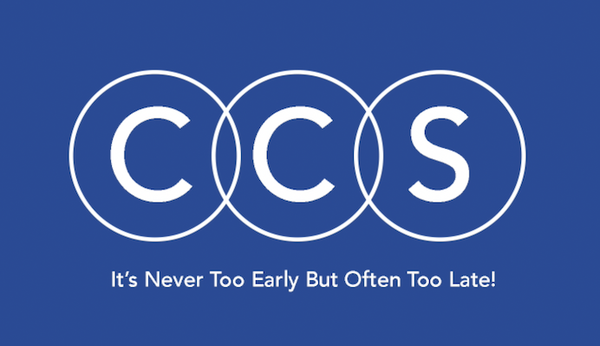
Guardians take on the role of parent to your children.
- Failing to name Guardians in your Will means that the care of minor children will be decided by the Courts.
- You should ensure that those persons you would want to bring up your children are willing to do so.
- You should make financial provision for your children to enable their Guardians to raise them.
- It is best to consider the age of the Guardians and to appoint two.
Guardians
The role of a Guardian is a very important one if you have children. Should you die without making a Will, or if you do not appoint Guardians in your Will, your children could be placed in care until the Court appoints official Guardians to look after them. This could take months and would obviously result in distress for your children and other members of your family. You should remember to request that your appointed Guardians also make a Will themselves to further safeguard the future of your children.
Who should act as Guardians?
You will need to consider who should be the Guardians of any children under the age of 18 years who may survive you. The Law has certain requirements, particularly where the parents are unmarried or have Divorced or Separated.
Assuming that either parent has the power to appoint a Guardian or Guardians on their death, it is usual for such appointments to take effect on the death of the second parent.
The normal choice is to appoint family member, particularly where very young children are involved. As children grow, the appointment of friends may be more appropriate as they are more likely to share your lifestyle and in these modern times live nearer than your family.
It is usual (but not essential) that the same persons are appointed Guardians of all the Testator’s minor children. When the Guardians are to act only after the death of the surviving parent it is desirable that each parents should appoint the same persons to act as Guardian. It is, of course, important that the Testator should obtain the consent of the proposed Guardian before making the appointment.
Although each parent can appoint different Guardians, it is worth remembering that both will legally act in the event of your death, so depending on who you have chosen, will impact on your children’s future. You can also appoint different Guardians for different children, but this may mean splitting them up. Guardians have to ensure that adequate contact between the children is maintained, but you may not be happy having your children divided in anyway.
Who cannot appoint Guardians?
Unmarried fathers who don’t have parental responsibility cannot name Guardians; neither will they necessarily become Guardian should the mother die. If they wanted to ensure that they did, it would be necessary to enter into a written agreement to share responsibility with the mother, or apply to the Court. It would be possible for unmarried Fathers to become Guardians if appointed by the Mothers or by marriage.
How many Guardians?
Where the appointment of family members is being considered, care needs to be taken when considering appointing a ‘committee’ of relatives. The obvious disadvantages with a committee are that the well-being of your children may be overlooked and a committee can be difficult to manage.
It is best to limit the maximum number of Guardians to two and it is preferable that they share a home as partners. Thus your children will become part of a familiar and stable environment at probably the most difficult time of their lives. By all means appoint substitute Guardians, as this will ensure continuity if circumstances change.
The Guardian’s duties
The duties of a Guardian are essentially the same as those of a parent. They are responsible for the day-to-day upbringing of your child including holidays, birthday presents and all the everyday things that we take for granted. The terms of the Will should be such that the Executors and subsequently Trustees can do all that is necessary to assist in financial terms.
The implications
The role of the Guardian is a very responsible one and should not be entered into lightly. There will be financial, social and emotional implications taking on such a vast role and the matter should be discussed in detail between the Testator and the appointed Guardians.
Many parents will provide financial support for their children in the event of their death and although it may seem insensitive to question them about this, it is a factor in making your decision. You may be able to claim child benefit and receive Guardian’s allowance in the event that both parents are deceased. Where one parent is alive and you are still called upon to act as Guardian, the situation will obviously be more complicated.
There are circumstances under which the Guardian will be called upon when both parents are not Deceased in certain cases where:
- A surviving parent is unable to perform their role because they are overseas, in the army, in prison, disabled or mentally incapacitated, or after the death of the first parent, or they just refuse responsibility.
- A couple are Separated or Divorced and just one of the parents dies. The Guardian will act with the surviving parent and should disputes arise, they will have to be settled by the Court. The surviving parent is still considered the statutory Guardian.
Financial Considerations
It is normal for the financial management to be separated from the day-to-day upbringing of children whilst the Guardians have the daily responsibility, it is better or the financial control to be handled by someone different, normally the Trustees of your estate.
The two tasks demand different skills that may not always be found in the same person. It also means that the Trustees, the Guardian and when they are old enough, your children, can share what can be difficult decisions.
In your Will, where your children are underage and are to benefit from your estate, you should nominate them as the Beneficiaries. In no circumstances should you nominate the Guardians – as mentioned above, the money will be held in Trust, and will be controlled by the Trustees for the benefit of the children.
The appointment of testamentary Guardians for children allows you to decide who should be responsible for your children’s welfare, maintenance and education, and how these should be funded if both your deaths occur while any child is under 18 years of age.
There is no legal reason why you cannot appoint the same people as Executors, Trustees and Guardians if you wish, but you should be aware that there is a potential conflict of interest in that the Trustees are responsible for advancing sums of money held in Trust to the Guardians to help with Guardianship duties. However, if you have absolute trust in the people appointed, then do not allow this to concern you.
Do consider factors such as the age of your Guardians, where they live in relation to you (would children have to move school? etc.), how close the relationship is between your Guardians and children now, and if your Guardians know and share your views on how your children should be raised and educated, etc.
To sign up for a FREE meeting with one of our advisers, click ‘Apply Today’
getasecondopinion.co.uk/contact
“It’s never too early- but it’s often too late!!!”



20 thoughts on “What is the role of a Guardian?”